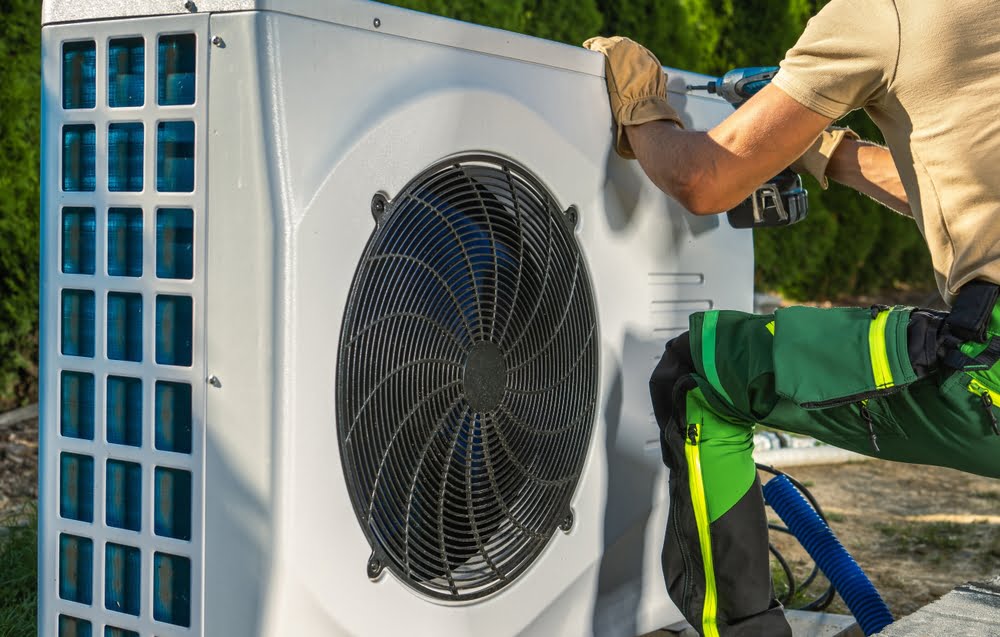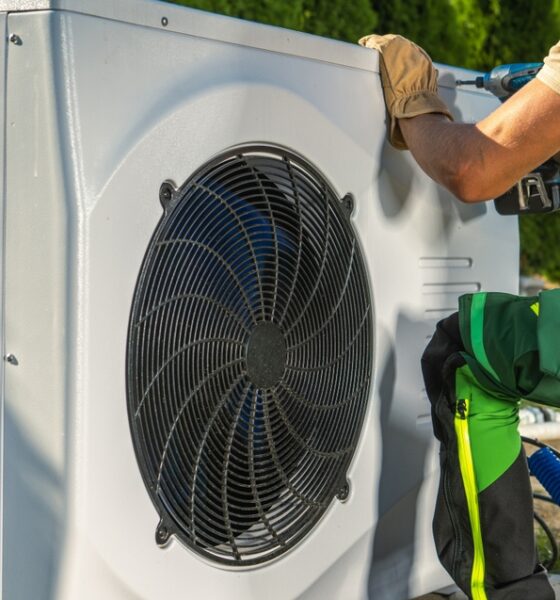

Energy
UK Lags EU in Installing Heat Pumps to Slow Climate Change
We all need to make energy efficiency a priority if we want to live eco-friendlier lifestyles. One of the best ways that we can use greener forms of energy is by investing in heat pumps.
There have been growing calls from analysts and specialists for the UK government to act now and make heat pumps mandatory for every new home built in the country. Alongside this, there should also be a proposal to provide a much higher level of grants available for existing homes to install heat pumps. This comes in the light of data that highlights how far behind the UK is currently lagging behind EU countries in terms of the installation of heat pumps. This is at a time where every country needs to be doing more to boost decarbonization and to meet mid-term net zero targets to help alleviate the effects of climate change.
In fact, the number of heat pumps installed in the UK is 10 times lower than in France. This should not be the case when the housing markets are in a similar position. In 2022, only 55,000 heat pumps were sold in the UK, compared with over 620,000 in France. There were another 20 European countries with higher installation rates for heat pumps than the UK. This is a glaring problem in the face of climate catastrophe.
Heat pumps and net zero
With a government goal of the UK reaching net zero emissions by 2050, there needs to be a significant shift in the way that new homes are built, and old homes are changed to include renewable energy and shift away from the use of fossil fuels. We have seen already the impact of climate change with the 40⁰C in the summer of 2022, and we can expect to see more of the same over the coming years and decades.
The ’Heat and Buildings Strategy’ was launched in October 2021 and is a plan to help decarbonize virtually all heat in buildings. Phasing out the use of fossil fuels by 2035 is at the very heart of this strategy, which is achievable if alongside it the application of low carbon products, energy sources, and fuels, are increased.
Legislation is committed to fitting low carbon heating options and improving levels of energy efficiency. One of the best ways to achieve these aims is through the installation of heat pumps. Heat pumps could do wonders to help stop climate change.
The benefits of heat pumps
For homeowners, construction firms, and property developers, there does need to be more said about the benefits of heat pumps to a household, aside from the top-down approach of government telling us it is a requirement. The following benefits of heat pumps are meaningful in attracting greater numbers to install heat pumps.
Low running costs – heat pump systems are much more cost effective than traditional heating systems, with long-term savings that could be up to £1,400 per year on average.
Little maintenance – compared to combustion heating systems, heat pumps require little maintenance. There are parts that require checking once a year, but a professional will only need to look at your heat pump once every 3-5 years.
Good safety levels – heat pumps are much safer to operate than traditional heating systems you may be used to. They rely on electricity and not fuel to burn in order to generate heat.
Reduce carbon emissions – this is the big one in terms of this article, of course. Heat pumps significantly reduce the carbon footprint of a household.
Cool your property – heat pumps work the other way too, with the ability to reverse the heating process and become an air-conditioning unit.
Long life cycle – on average, a heat pump will last around 15 years, with some reaching 20 years at its operational peak. They are reliable and sturdy.
Heat pump targets
Heat pumps will only help the government targets for net zero emissions if enough of them are installed and if the systems are designed correctly to utilise them effectively. It was estimated that 19 million heat pumps would need to be installed by 2035, and that hybrid heat pumps would widely be in use by this time. 600,000 heat pump installation per year by 2028 was the promise, and yet last year you are looking at a much lower figure of 55,000, which has been highlighted in a report by the MCS Charitable Foundation, which approves low-carbon certification standards.
One of the other bonuses to pushing heat pump installation in the UK to hit the 600,000 annual installation is that it could help create up to 50,000 new jobs, compared with the 2,000 industry jobs currently in the UK. The UK could become a leader in renewable energy if it shifted its position on several aspects of the process and change towards net zero. This could include mandatory provision of heat pump installation in every new home, an awareness campaign of the benefits of heat pumps nationwide, and greater grants and incentives. There are great suppliers and installers of heat pumps in the UK already, ready to help with these targets. As it stands, the current government targets look a far way off.


 Environment11 months ago
Environment11 months agoAre Polymer Banknotes: an Eco-Friendly Trend or a Groundswell?

 Features10 months ago
Features10 months agoEco-Friendly Cryptocurrencies: Sustainable Investment Choices

 Features11 months ago
Features11 months agoEco-Friendly Crypto Traders Must Find the Right Exchange

 Energy10 months ago
Energy10 months agoThe Growing Role of Solar Panels in Ireland’s Energy Future





























